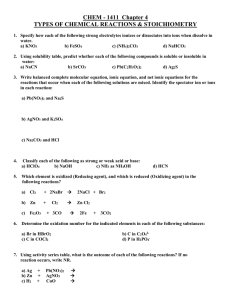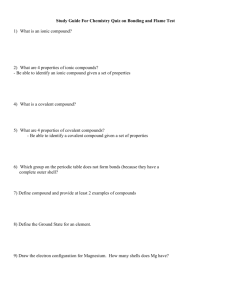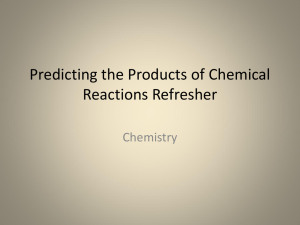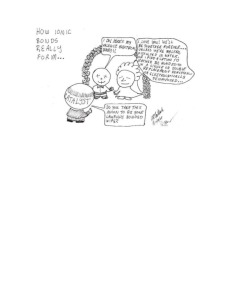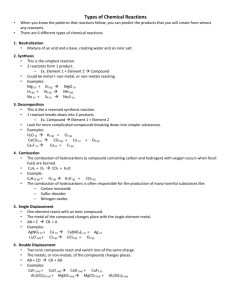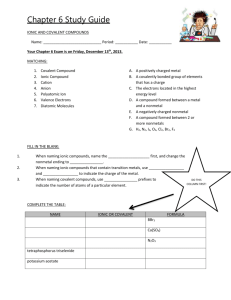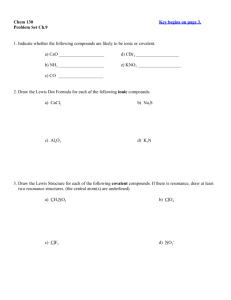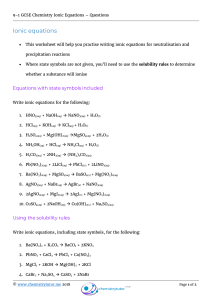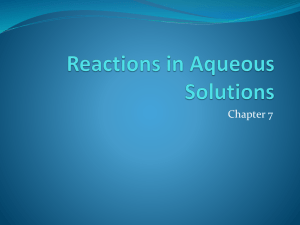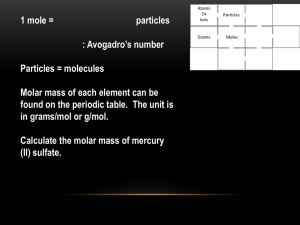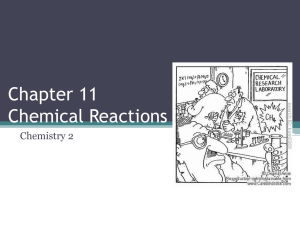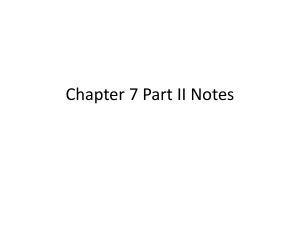Chemistry 30 * Unit 1 Chem 20 Review
advertisement
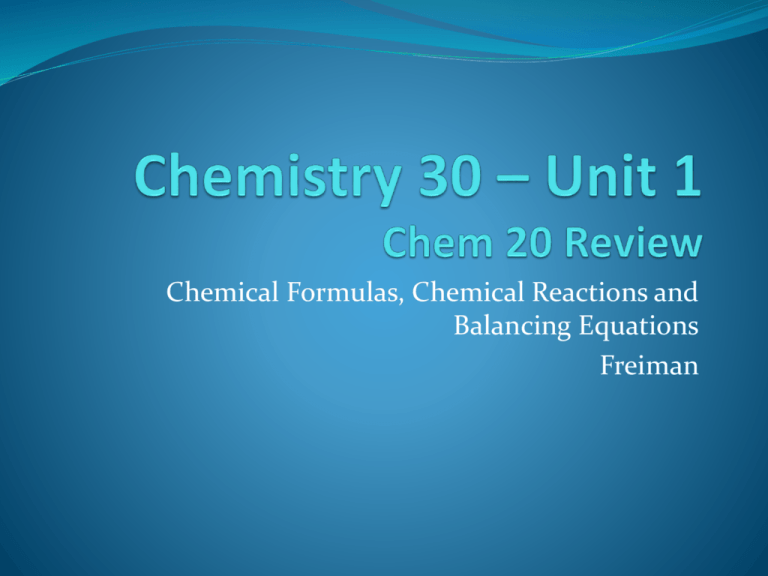
Chemical Formulas, Chemical Reactions and Balancing Equations Freiman Compounds - Ionic Contain CATIONS and ANIONS Naming: 1. Name cation 2. Name anion Ex) CaCl2 = calcium chloride Ex2) Al2(SO4)3 = aluminum sulfate Ex3) NiS = nickel(II) sulfide Building Formulas: 1. Show both ions 2. Cross-multiply to even out the charges 3. Write chemical formula with subscripts Ex 1) sodium sulfide Na+ S2x2 x1 Na2S Ex 2) calcium nitrate Ca2+ NO3Ca(NO3)2 **To finish, use SOLUBILITY CHART to determine solubility in water Compounds - Molecular Contains only non-metals Naming 1. Name first element with prefix 2. Name second element with prefix and IDE ending Ex) N2H4 – dinitrogen tetrahydride **Prefixes: mono, di, tri, tetra, penta, hexa, hepta, octa, nona, deca Chemical Reaction Types 5 common types of reactions Need to be able to predict products of these reactions and then BALANCE the equation 1. Single Replacement: Element “replaces” element of the same kind in new compound NaBr(aq) + Cl2(g) NaCl(aq) + Br2(g) 2NaBr(aq) + Cl2(g) 2NaCl(aq) + Br2(g) 2. Double Replacement: Ions “switch partners” to make two new ionic compounds Ca(NO3)2(aq) + Na2SO4(aq) NaNO3(aq) + CaSO4(s) Ca(NO3)2(aq) + Na2SO4(aq) 2NaNO3(aq) + CaSO4(s) 3. Formation: Most common ionic compound is produced from elements Fe(s) + S8(s) FeS(s) 8Fe(s) + S8(s) 8FeS(s) 4. Decomposition: Compound breaks down into elements KI(s) K(s) + I2(s) 2KI(s) 2K(s) + I2(s) 5. Combustion: Compound reacts with OXYGEN to produce common oxides C – CO2 N – NO2 S – SO2 H – H2O Metals – ionic metal oxide CH4(g) + O2(g) CO2(g) + H2O(g) CH4(g) + 2O2(g) CO2(g) + 2H2O(g) Practice Predict the products for the following reactions and then balance the equation
